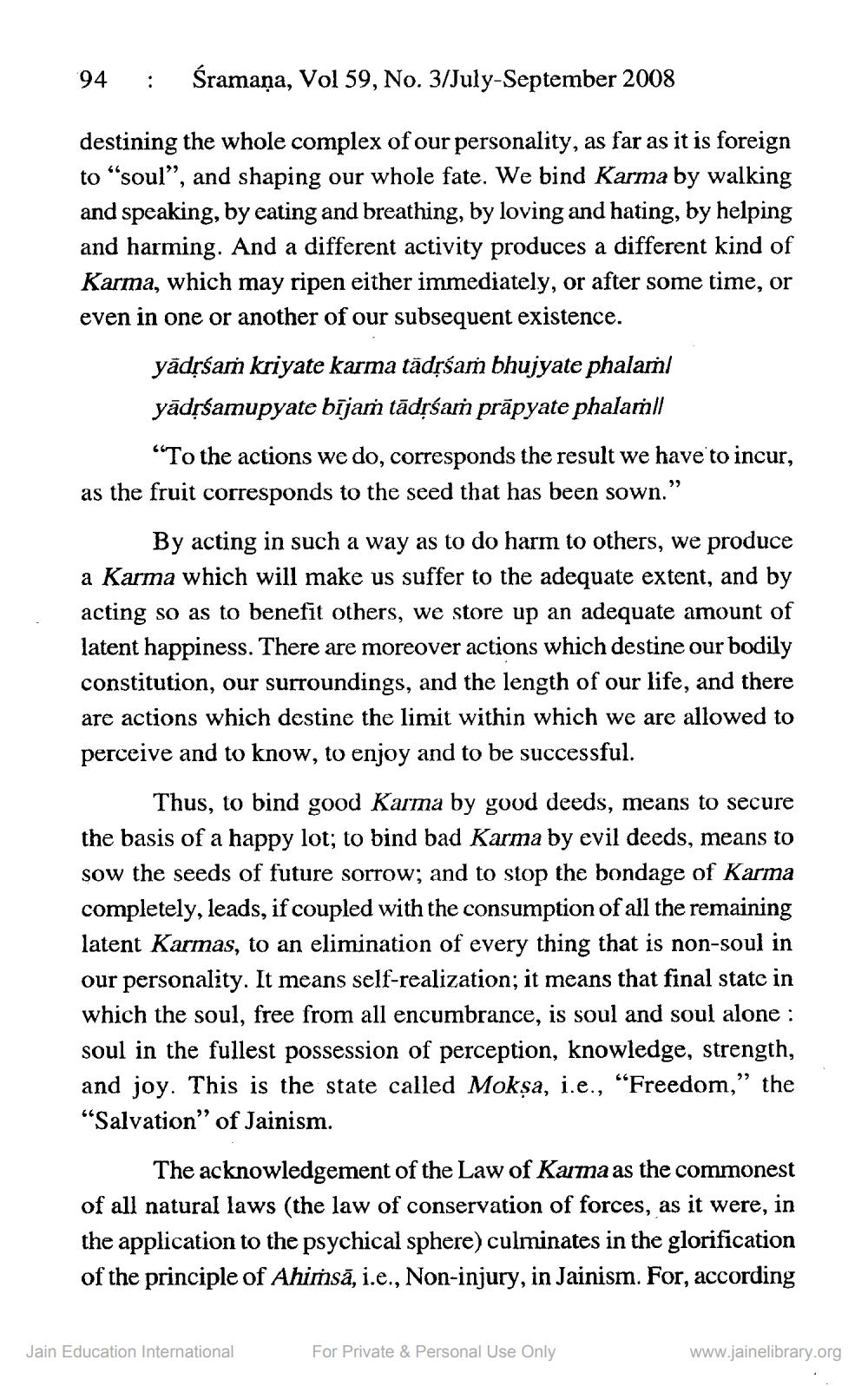________________
94
:
śramaņa, Vol 59, No. 3/July-September 2008
destining the whole complex of our personality, as far as it is foreign to "soul”, and shaping our whole fate. We bind Karma by walking and speaking, by eating and breathing, by loving and hating, by helping and harming. And a different activity produces a different kind of Karma, which may ripen either immediately, or after some time, or even in one or another of our subsequent existence.
yādľśaṁ kriyate karma tādssam bhujyate phalarn/ yādssamupyate bījaṁ tādssam prāpyate phalamll
"To the actions we do, corresponds the result we have to incur, as the fruit corresponds to the seed that has been sown."
By acting in such a way as to do harm to others, we produce a Karma which will make us suffer to the adequate extent, and by acting so as to benefit others, we store up an adequate amount of latent happiness. There are moreover actions which destine our bodily constitution, our surroundings, and the length of our life, and there are actions which destine the limit within which we are allowed to perceive and to know, to enjoy and to be successful.
Thus, to bind good Karma by good deeds, means to secure the basis of a happy lot; to bind bad Karma by evil deeds, means to sow the seeds of future sorrow; and to stop the bondage of Karma completely, leads, if coupled with the consumption of all the remaining latent Karmas, to an elimination of every thing that is non-soul in our personality. It means self-realization; it means that final state in which the soul, free from all encumbrance, is soul and soul alone : soul in the fullest possession of perception, knowledge, strength, and joy. This is the state called Moksa, i.e., “Freedom,” the “Salvation" of Jainism.
The acknowledgement of the Law of Karma as the commonest of all natural laws (the law of conservation of forces, as it were, in the application to the psychical sphere) culminates in the glorification of the principle of Ahiṁsā, i.e., Non-injury, in Jainism. For, according
Jain Education International
For Private & Personal Use Only
www.jainelibrary.org




